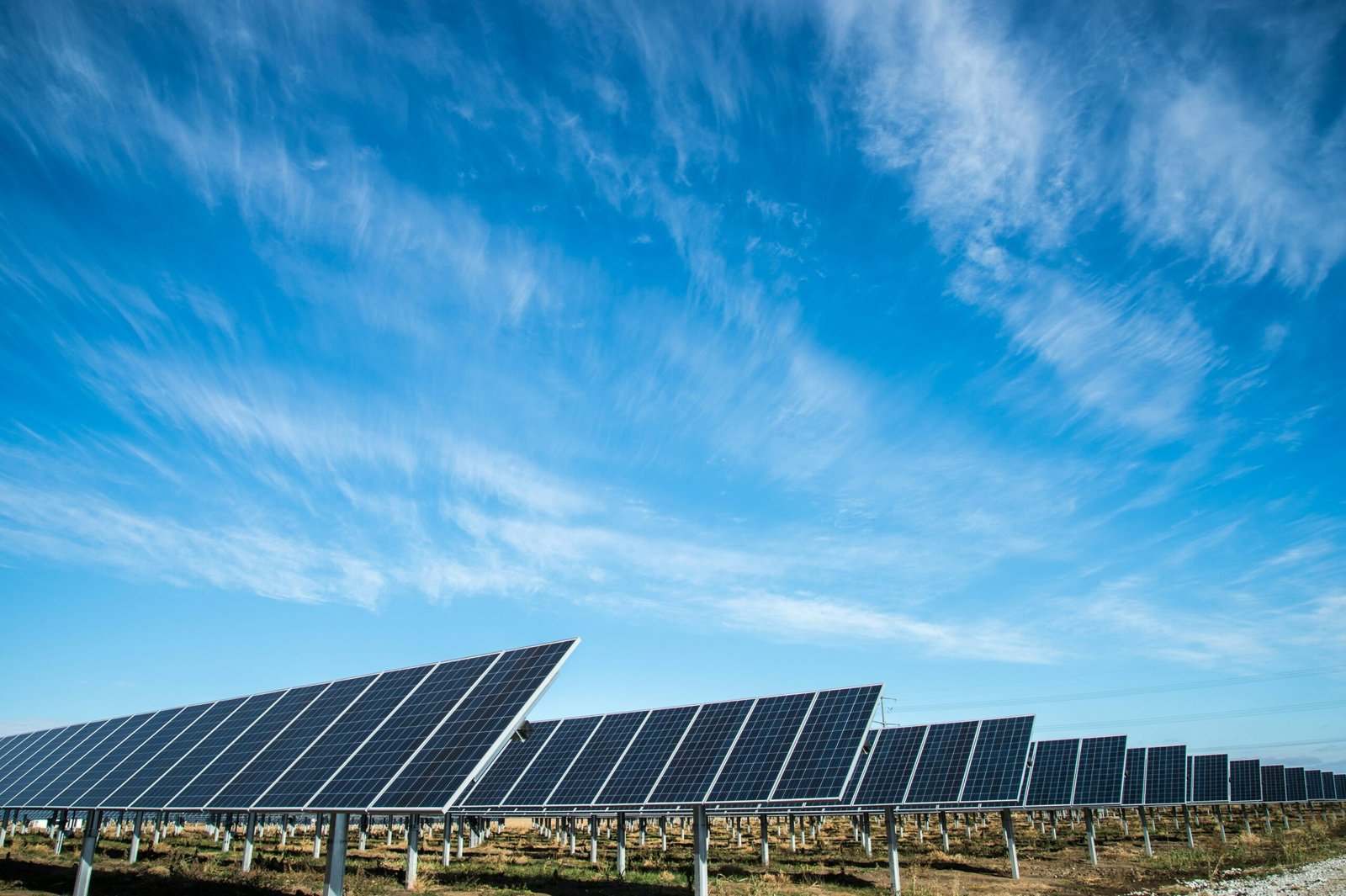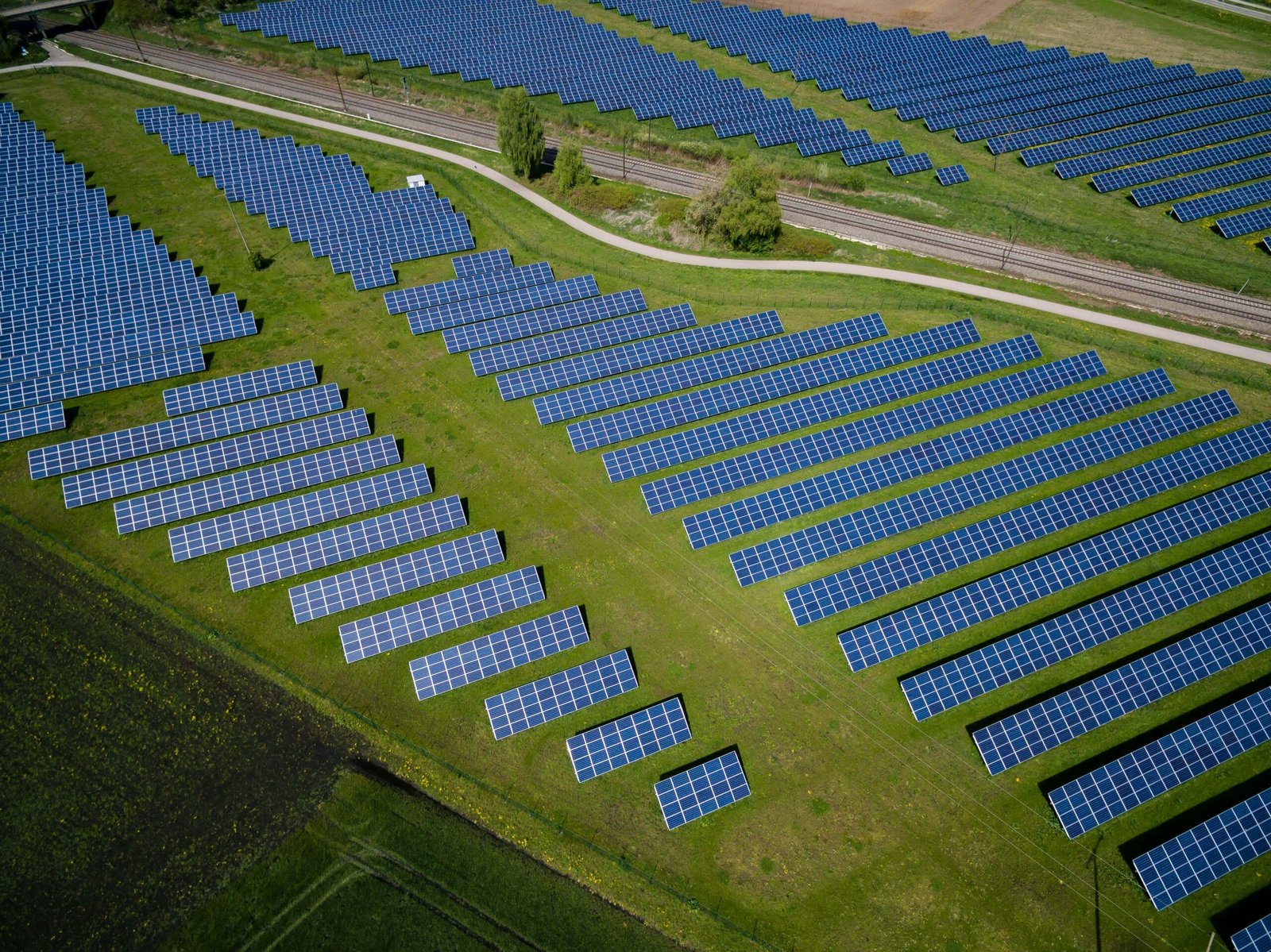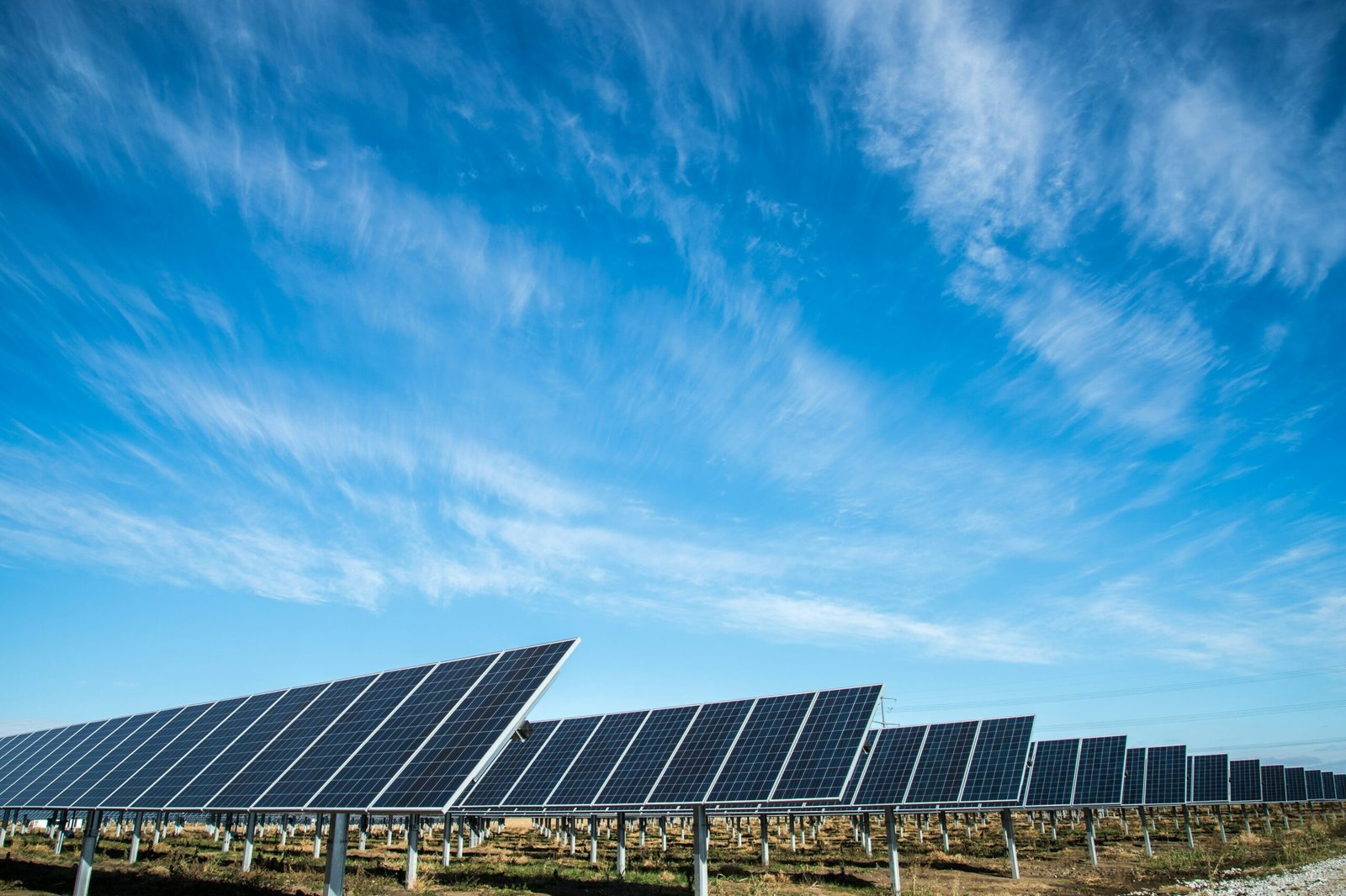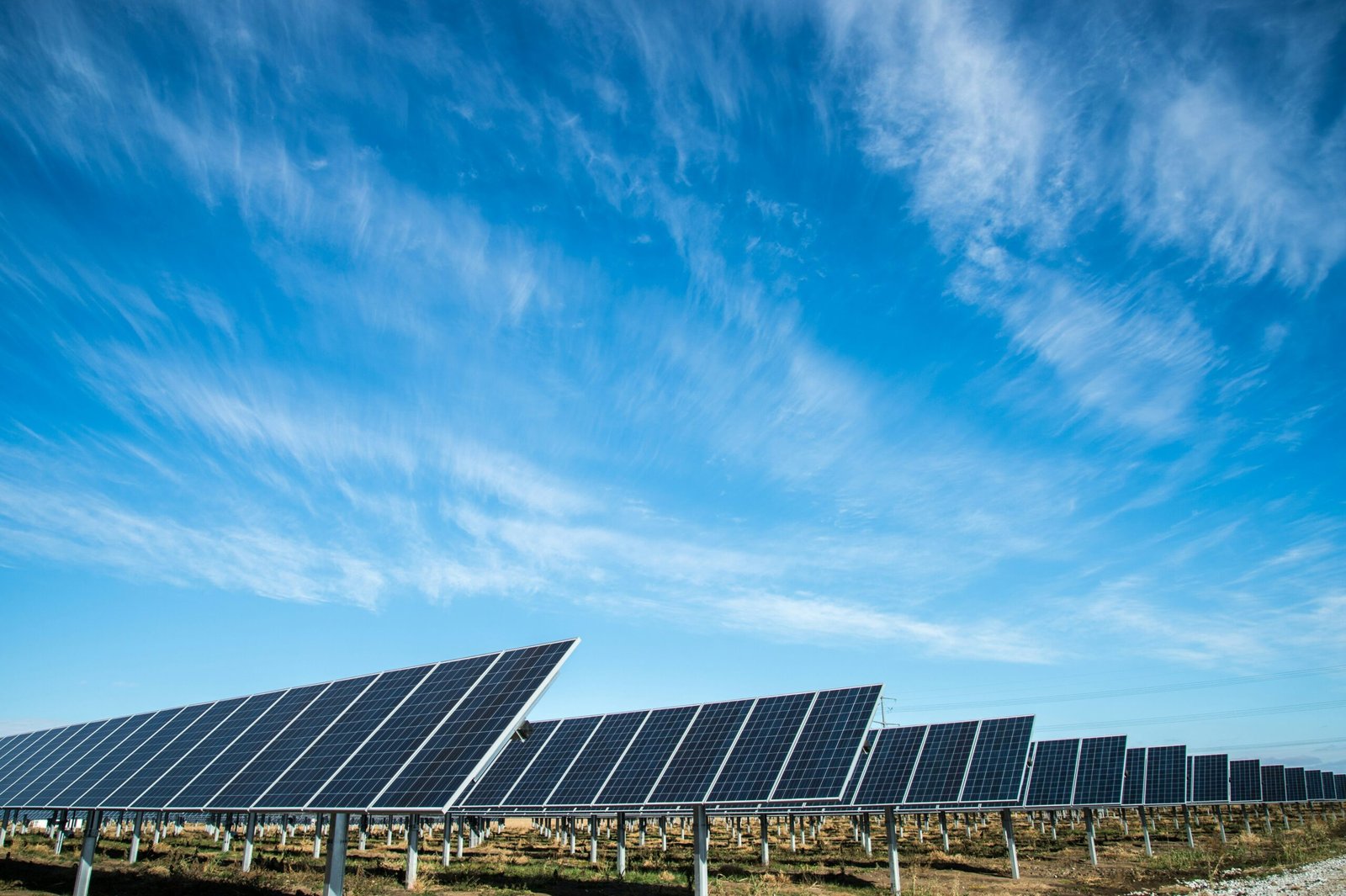Introduction to Solar Energy
Solar energy, derived from the sun’s radiation, is a renewable and sustainable source of power that has gained significant traction globally. The fundamental principle behind solar energy involves the use of solar panels, which consist of photovoltaic cells. These cells capture sunlight and convert it into electricity through the photovoltaic effect. This process not only produces clean energy but also reduces dependence on fossil fuels, thereby mitigating environmental impact.
The adoption of solar energy has seen exponential growth, driven by both technological advancements and a collective global push for more sustainable energy solutions. Innovations in photovoltaic technology have significantly improved the efficiency and affordability of solar panels, making them a viable option for a broader range of applications—from residential rooftops to large-scale solar farms. Countries across the globe are increasingly investing in solar infrastructure, recognizing its potential to address energy needs while combating climate change.
Moreover, the benefits of solar energy extend beyond environmental sustainability. As we delve deeper into the economic advantages in subsequent sections, it becomes clear that solar energy offers a compelling case for cost savings and financial resilience. The integration of solar energy into the power grid is not only a step toward a cleaner planet but also a strategic move to enhance energy security and economic stability. With ongoing research and development, the efficiency and accessibility of solar power continue to improve, promising a brighter and more sustainable future.
Cost Savings from Solar Energy
The economic benefits of solar energy are becoming increasingly evident as both residential and commercial users experience substantial cost savings. One of the most significant factors contributing to these savings is the considerable decrease in initial installation costs. Over the past decade, the price of solar panels and related equipment has declined dramatically, making solar energy more accessible than ever before. Advances in technology and increased production efficiencies have driven these cost reductions, allowing more people to consider solar as a viable option.
Once a solar system is installed, the potential for reducing or even eliminating electricity bills becomes a reality. Solar panels convert sunlight into electricity, which can be used to power homes and businesses. This reduces dependence on the grid and minimizes monthly utility expenses. In many cases, excess electricity generated by solar panels can be sold back to the grid through net metering programs, providing an additional financial benefit.
In the long term, the financial advantages of solar energy extend beyond immediate savings on electricity bills. Solar installations can increase property values, offering a return on investment if the property is sold. Moreover, solar energy systems typically require minimal maintenance, further reducing ongoing costs. These long-term savings make solar energy an attractive investment for those looking to reduce expenses while contributing to environmental sustainability.
Government incentives, tax credits, and rebates are also crucial in making solar energy more affordable. Various programs at the federal, state, and local levels offer financial assistance to offset the initial costs of solar installations. For instance, the federal Investment Tax Credit (ITC) allows homeowners and businesses to deduct a significant portion of their solar costs from their taxes. Additionally, many states offer rebates and other incentives to encourage the adoption of solar energy.
Real-world examples illustrate the profound impact of solar energy on cost savings. For instance, a small business in California reported saving thousands of dollars annually on electricity after installing a solar system. Similarly, a family in Arizona managed to reduce their monthly utility bills to nearly zero through their residential solar installation. These case studies highlight the tangible financial benefits of transitioning to solar energy.
Return on Investment and Increased Property Value
Investing in solar energy systems can offer substantial financial returns over time, often surpassing those of traditional investment options. The return on investment (ROI) for solar panels is a key factor in their growing popularity. By converting sunlight into electricity, solar energy systems can significantly reduce or even eliminate your electricity bills. This immediate reduction in energy costs translates directly into savings, allowing homeowners and businesses to recover the initial cost of the installation in a relatively short period.
Studies have shown that the average payback period for a solar energy system ranges between 5 to 10 years, depending on various factors such as location, energy consumption, and available incentives. After the payback period, the electricity generated by the solar panels is essentially free, leading to decades of reduced energy expenses. Additionally, with the increasing cost of traditional energy sources, the savings from solar energy are likely to grow over time, further enhancing the ROI.
Beyond the direct financial benefits, solar installations can also increase property values. According to a study by the Lawrence Berkeley National Laboratory, homes with solar panels sell for a premium compared to those without. The research indicated that homebuyers are willing to pay more for properties equipped with solar energy systems due to the anticipated savings on future electricity costs. This premium can range from 3% to 4% of the property’s value, depending on the size and efficiency of the solar system installed.
Commercial properties also benefit from solar installations. Businesses that invest in solar energy can attract environmentally conscious tenants and customers, enhancing their marketability. Furthermore, in a competitive real estate market, properties with lower operating costs due to solar energy usage stand out, attracting higher bids and quicker sales.
Testimonials from property owners who have invested in solar energy systems further validate these findings. Many report not only significant reductions in their energy bills but also an increase in their property’s market value. These firsthand accounts, coupled with statistical data, underscore the dual financial benefits of solar energy: robust ROI and enhanced property value.
Environmental and Social Economic Benefits
The adoption of solar energy extends far beyond individual cost savings, offering substantial economic and social benefits on a larger scale. One of the most notable advantages is job creation within the renewable energy sector. The production, installation, and maintenance of solar panels generate numerous employment opportunities. This growth in the renewable energy industry not only provides jobs but also fosters specialized skills and training, contributing to a more robust and adaptable workforce.
Furthermore, solar energy significantly reduces dependence on fossil fuels, which has profound economic implications. By decreasing reliance on imported fuels, countries can enhance their energy security and reduce the economic risks associated with volatile fuel prices. This shift towards energy independence ensures a more stable and predictable energy market, fostering economic resilience.
The development of solar farms also stimulates local economies. Communities hosting these projects often see increased investment and infrastructure improvements, which can lead to economic revitalization. Local businesses benefit from the influx of workers and related industries, creating a ripple effect that boosts economic activity within the region. The growth of related sectors, such as manufacturing and technology, further amplifies these positive economic impacts.
Beyond these immediate economic benefits, the societal advantages of reducing greenhouse gas emissions and mitigating climate change are profound. Lower emissions contribute to improved public health by reducing pollution-related illnesses and healthcare costs. Cleaner air and a healthier environment lead to a higher quality of life, which can translate to increased productivity and reduced economic strain on public health systems.
In essence, the environmental benefits of solar energy, such as reducing greenhouse gas emissions and curbing climate change, provide a foundation for long-term economic stability. By investing in solar energy, societies can enjoy not only a cleaner and healthier environment but also sustained economic growth and public health improvements, underscoring the multifaceted value of transitioning to renewable energy sources.







